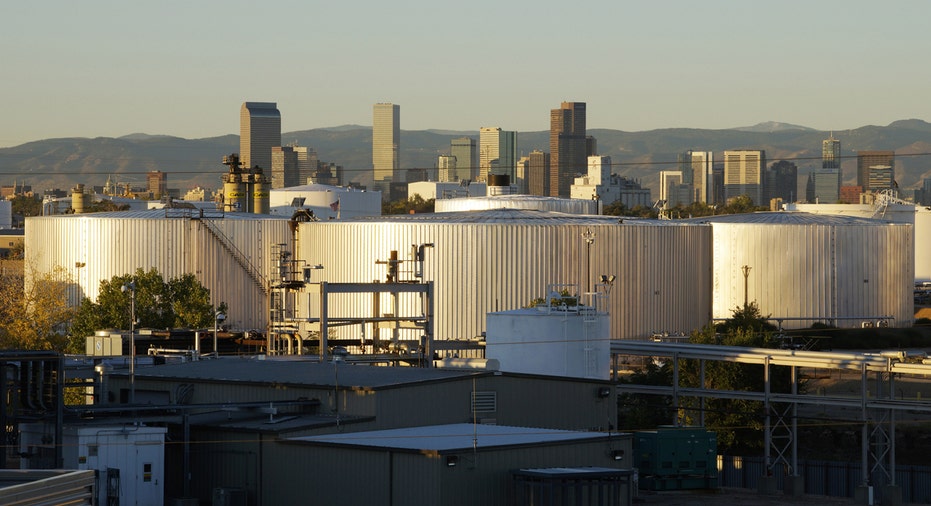Oil Extends Losses After Big Stockbuild in U.S. Crude

Oil prices were down about 3 percent on Wednesday after U.S crude stockpiles soared to record highs for a sixth straight week and triple analysts' expectations, rekindling worries of a glut that could reverse the market's two-month long rally.
The government-run U.S. Energy Information Administration (EIA) said crude stockpiles rose 9.4 million barrels last week, not far from the 8.8 million-barrel build indicated by industry group American Petroleum Institute on Tuesday but way off the 3.1 million barrels forecast in a Reuters poll.
U.S. crude futures were down $1.31, or 3 percent, at $40.14 a barrel by 12:30 p.m. EDT (1630 GMT).
Brent crude futures were off $1.05, or 2.5 percent, at $40.74.
"The data will do little to help oil bulls, given the monster build for crude inventories already at record high levels prior to this," said Chris Jarvis, analyst at Caprock Risk Management in Frederick, Maryland.
The data was partially positive, with gasoline stocks falling 4.6 million barrels, also three times more than forecast. Demand for the motor fuel over the past four weeks soared 7 percent year-on-year.
Crude stockpiles at the Cushing, Oklahoma, delivery hub - an important data point - also fell for the first time in seven weeks.
But the focus remained on total crude stockpiles which hit all-time highs of 532.5 million.
"The rally, in our opinion, has run its course for now," said Tariq Zahir at Tyche Capital Advisors in New York, who is betting nearer-dated U.S. oil contracts will weaken versus long-dated ones, expanding the so-called "contango" market structure.
Weaker U.S. equity markets, which since the start of this year have traded in tandem with oil, also weighed on crude. A stronger dollar further rendered commodities priced in the greenback less affordable to holders of currencies such as the euro.
Crude has rallied about 50 percent over the past two months from 12-year lows, lifting U.S. crude from around $26 and Brent from around $27.
While some of the gains were related to declining U.S. oil production and strong demand for gasoline, the bulk was due to plans by OPEC and other major producers to freeze production at January's highs.
The oil minister of Nigeria, an OPEC member, said in an interview crude prices should stabilize after the producer group agrees to a supply freeze in Doha next month, even if OPEC member Iran skips the meeting to boost its own output.
(By Barani Krishnan; Additional reporting by Ahmad Ghaddar in LONDON; Editing by Marguerita Choy)



















